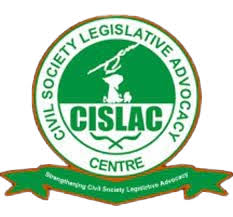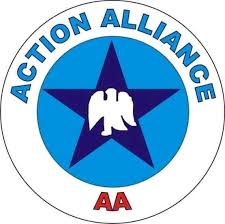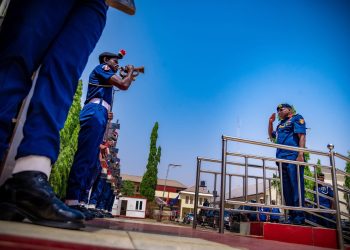By Nkechi Eze
The Civil Society Legislative Advocacy Centre (CISLAC) and Transparency International in Nigeria (TI-Nigeria) have commended the House of Representatives for its decision to investigate all security intervention funds released by the Federal Government from 2020 to date, describing the move as a step toward strengthening accountability and transparency in Nigeria’s defence and security expenditure.
In an official statement signed by its Executive Director and Head of TI-Nigeria, Auwal Ibrahim Musa (Rafsanjani), CISLAC/TI-Nigeria lauded the House Ad-hoc Committee on the Expenditure of All Intervention Funds on Security, chaired by Hon. Zakaria Nyampa, for initiating the probe aimed at promoting “transparency, accountability, and fiscal discipline in the disbursement and utilization of resources meant to protect Nigerians and nationals of other nations.”
Rafsanjani expressed optimism that the National Assembly would conduct the exercise with sincerity and diligence, in line with its constitutionally guaranteed oversight powers. He stressed that effective legislative scrutiny was critical to curbing the persistent mismanagement and diversion of public resources in Nigeria’s security sector.
Over the years, CISLAC/TI-Nigeria, through engagements across Nigeria’s six geopolitical zones, has consistently drawn attention to the high level of corruption, illicit diversion, procurement racketeering, and financial mismanagement plaguing the defence and security establishments. According to the organization, such irregularities have contributed to operational inefficiency, underperformance in counter-terrorism efforts, and the worsening insecurity across the country.
In light of this, CISLAC/TI-Nigeria urged that the current legislative investigation be extended to cover the opaque “Security Vote” allocations to state governments. The group argued that the implementation of Security Votes has become riddled with corruption, diversion, and lack of transparency, which have further aggravated insecurity in various parts of Nigeria.
“We encourage extended sub-national efforts by relevant stakeholders and oversight authorities, including State Houses of Assembly, to deepen investigations and uncover how years of huge allocations under the guise of ‘Security Vote’ have been applied,” Rafsanjani said, noting that transparency and accountability at both federal and state levels were crucial to restoring public confidence in governance.
The organization reiterated its long-standing call for stronger civilian oversight of the defence and security sectors through enhanced institutional checks, improved financial management, and greater operational transparency. It emphasized that efficient oversight remained essential to preventing fraud, promoting professionalism, and ensuring the effective use of public funds.
CISLAC/TI-Nigeria also welcomed the committee’s decision to collaborate with key stakeholders, including the Federal Ministry of Finance, the Budget Office, the Office of the National Security Adviser, the Defence and Police authorities, the Economic and Financial Crimes Commission (EFCC), the Independent Corrupt Practices and Other Related Offences Commission (ICPC), and Civil Society watchdogs.
In a related development, the organization congratulated the newly appointed Service Chiefs, commending their early commitments particularly that of the Chief of Defence Staff, General Olufemi Oluyede to prioritize personnel welfare alongside efforts to enhance national security.
Rafsanjani recalled that CISLAC/TI-Nigeria had repeatedly called for improved remuneration, timely payment of allowances, and better living conditions for security personnel and their families, including those who lost their lives in active service. He expressed hope that the new leadership would institutionalize these welfare reforms across the entire defence structure.
He further urged the National Assembly to intensify reforms aimed at minimizing corruption risks in the defence and security sectors through comprehensive policy reviews covering procurement, operations, personnel, and financial management. He also called for clearer categorization of classified and non-classified items in defence procurement to enable effective external oversight in line with international best practices.
CISLAC/TI-Nigeria recommended the adoption of anti-corruption strategies that include improved asset recovery processes, citizen participation in monitoring defence expenditure, and harmonization of conflicting legal provisions in the Freedom of Information Act and the Official Secrets Act to strengthen transparency and civilian oversight.
The organization also called on the Ministries of Defence and Interior, in collaboration with the National Assembly and Civil Society, to implement a robust external oversight framework anchored on modern auditing tools, whistle-blower protection, risk-based monitoring, data analytics, and continuous training.
Rafsanjani reaffirmed CISLAC/TI-Nigeria’s commitment to promoting transparency and accountability in Nigeria’s defence and security sectors, noting that effective reform and oversight remain vital to ensuring national stability and the protection of lives and property.
















